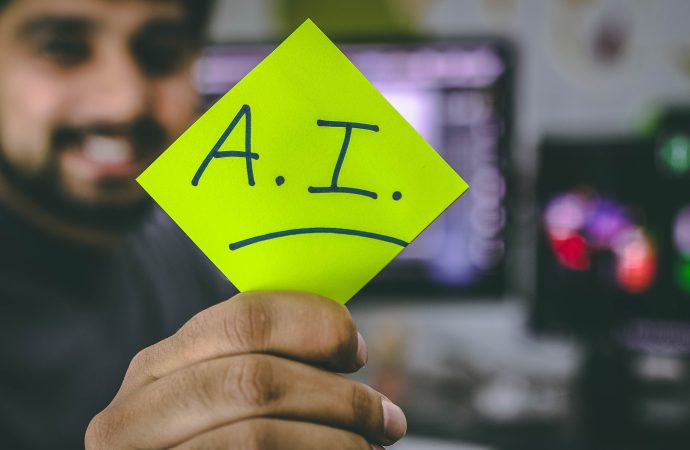Mental health disorders affect millions of people worldwide, yet diagnosis and treatment can often be complex and time-consuming. However, a groundbreaking development in the field of psychiatry is poised to change the landscape of mental healthcare. Artificial intelligence (A.I.) and machine learning algorithms are revolutionizing the diagnosis of mental health conditions, offering faster and more
Mental health disorders affect millions of people worldwide, yet diagnosis and treatment can often be complex and time-consuming. However, a groundbreaking development in the field of psychiatry is poised to change the landscape of mental healthcare. Artificial intelligence (A.I.) and machine learning algorithms are revolutionizing the diagnosis of mental health conditions, offering faster and more accurate assessments, and paving the way for more effective personalized treatments.
Traditionally, mental health diagnosis heavily relied on subjective evaluations, patient interviews, and symptom questionnaires. While these methods provide valuable insights, they are prone to biases and variations in interpretation. A.I.-assisted diagnosis, on the other hand, utilizes machine learning algorithms to analyze large datasets and identify patterns within them, enabling clinicians to make more objective and data-driven assessments.
One of the key advantages of A.I. in mental health diagnosis is its ability to process vast amounts of data quickly and efficiently. Machine learning algorithms can analyze electronic health records, genetic information, brain imaging data, and even social media posts, searching for patterns and associations that may be imperceptible to human clinicians. This comprehensive analysis provides a more holistic view of a patient’s condition, improving diagnostic accuracy and aiding in the identification of underlying factors and potential treatment options.
A.I. algorithms can also help detect early warning signs of mental health disorders. By continuously monitoring a patient’s digital footprint, such as smartphone usage, sleep patterns, and social media activity, machine learning algorithms can flag changes in behavior that may indicate the onset of mental health symptoms. This proactive approach allows for early intervention and preventive measures, potentially reducing the severity and long-term impact of mental health conditions.
Moreover, A.I. technology can assist in the development of personalized treatment plans. By analyzing large datasets and comparing treatment outcomes, machine learning algorithms can identify which treatments are most effective for specific patient profiles. This information helps clinicians make informed decisions about the most suitable interventions, minimizing the trial-and-error approach that often accompanies psychiatric treatment. Personalized treatment plans have the potential to improve patient outcomes and reduce healthcare costs in the long run.
However, it is essential to address potential concerns regarding the use of A.I. in mental health diagnosis. Patient privacy and data security must be rigorously upheld to ensure the confidentiality of sensitive information. Additionally, while A.I. algorithms can enhance diagnostic accuracy, they should always be viewed as tools to support clinical decision-making rather than replacing human judgment and expertise. The human element in mental healthcare, such as empathy, compassion, and therapeutic alliance, remains invaluable and must be preserved alongside technological advancements.
As with any technology, ongoing research and validation are crucial in the field of A.I.-assisted mental health diagnosis. Collaborations between data scientists, clinicians, and researchers are essential to refine and improve machine learning algorithms, ensuring their reliability, generalizability, and ethical application. Additionally, the inclusion of diverse and representative datasets is critical to address potential biases and disparities that may arise from algorithmic decision-making.
In conclusion, A.I.-assisted mental health diagnosis holds great promise in revolutionizing psychiatric care. The integration of machine learning algorithms into clinical practice has the potential to provide faster, more accurate diagnoses and personalized treatment plans. While there are ethical considerations and challenges to overcome, the synergy between human expertise and A.I. technology has the potential to significantly improve mental healthcare outcomes and support those in need.

















Leave a Comment
Your email address will not be published. Required fields are marked with *